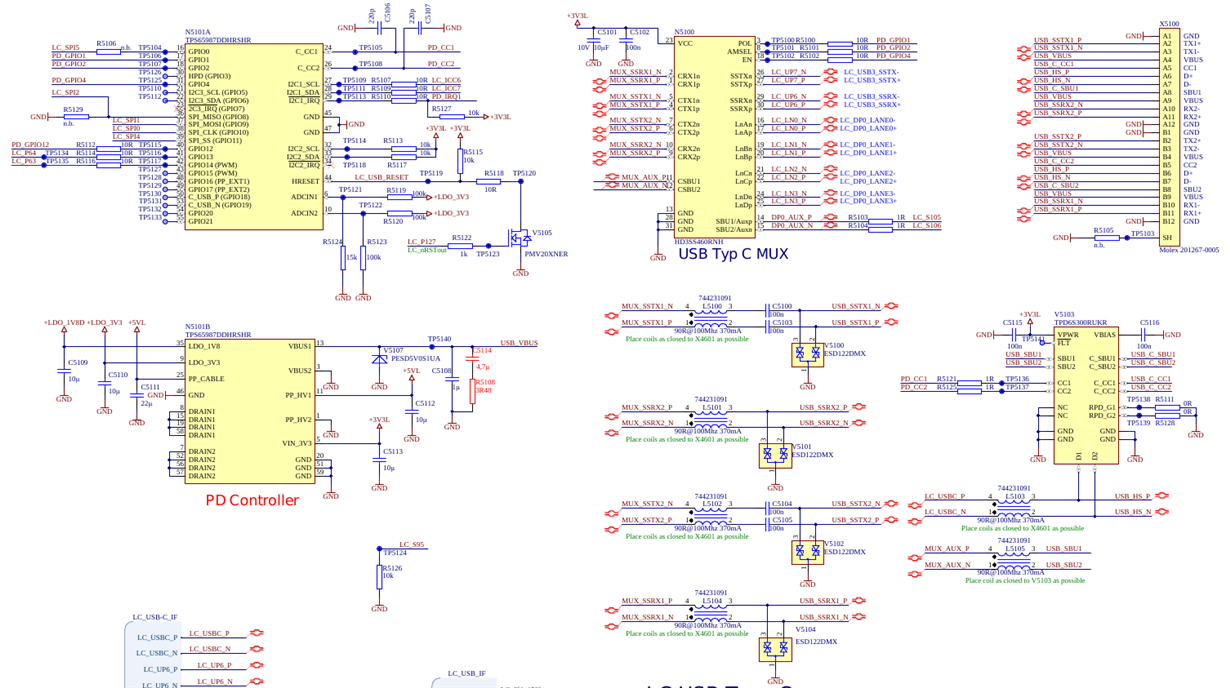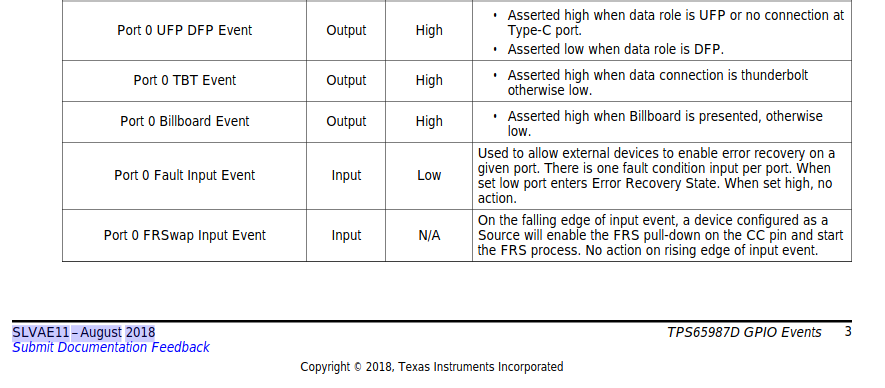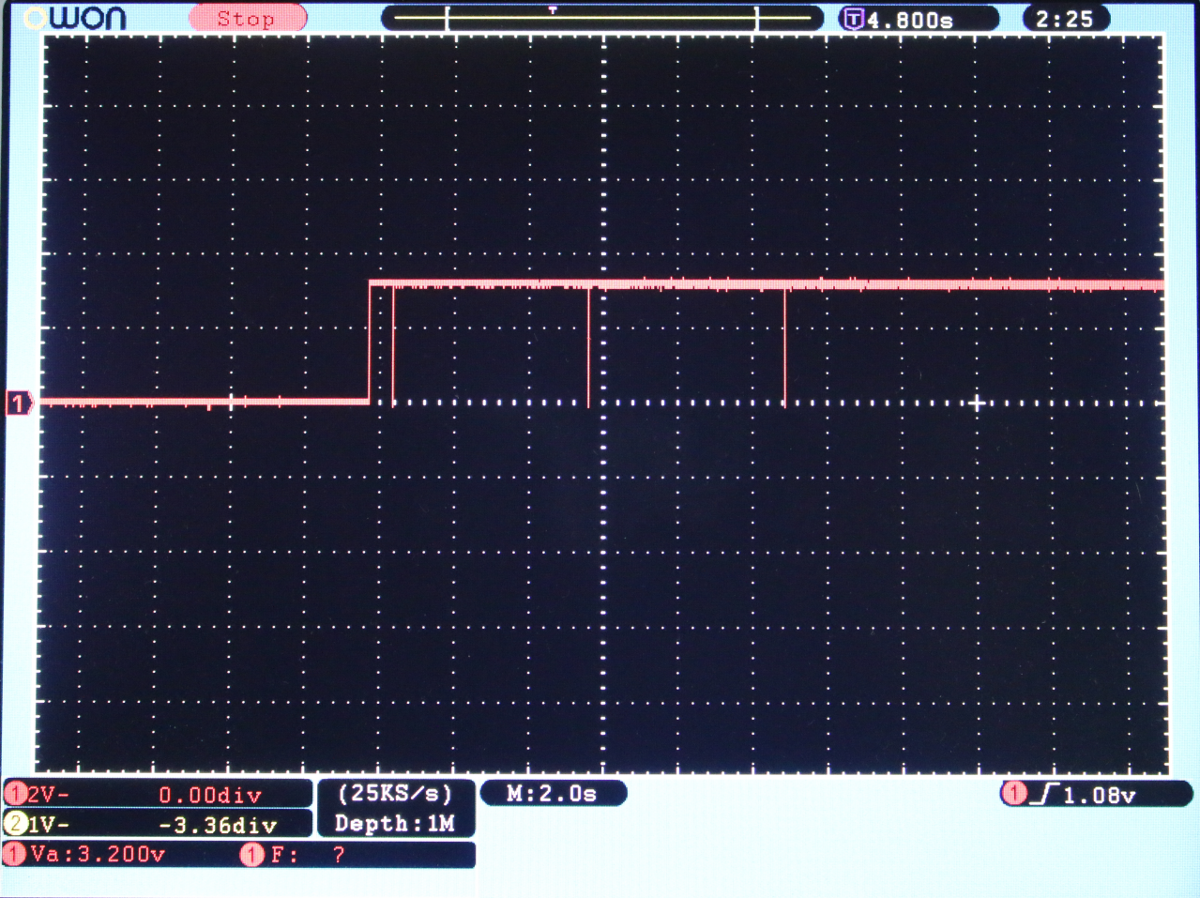Other Parts Discussed in Thread: TPS65987
Hi all,
We are replacing the TPS65986 via TPS65987 in our product.
The board with old TPS65986 working fine in DRP. New state based on TPS65987 working fine as DFP but does not working as UFP. With same state of host CPU module. I found following difference:
- In old state with TPS65986 the GPIO used as OTG is high when is nothing connected on USB-C or when the Port is activated as UFP. In DFP the GPIO is low
- In new state the GPIO is low when nothing connected on USB-C or when it works as DFP. Only when port ist UFP it goes high
But corresponding datasheet (s. attached screenshot) it should work like it was in old state.
Could you please say, what am I doing wrong? I attached the project file for TPS65987
Thanks a lot,
Sergey





